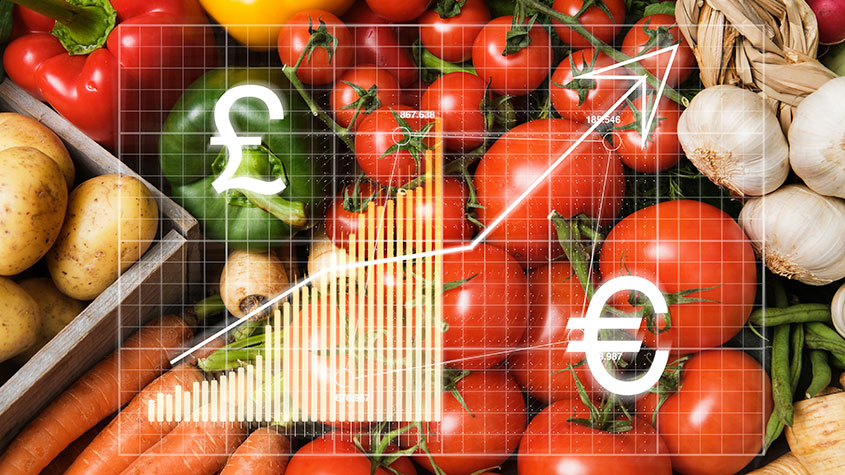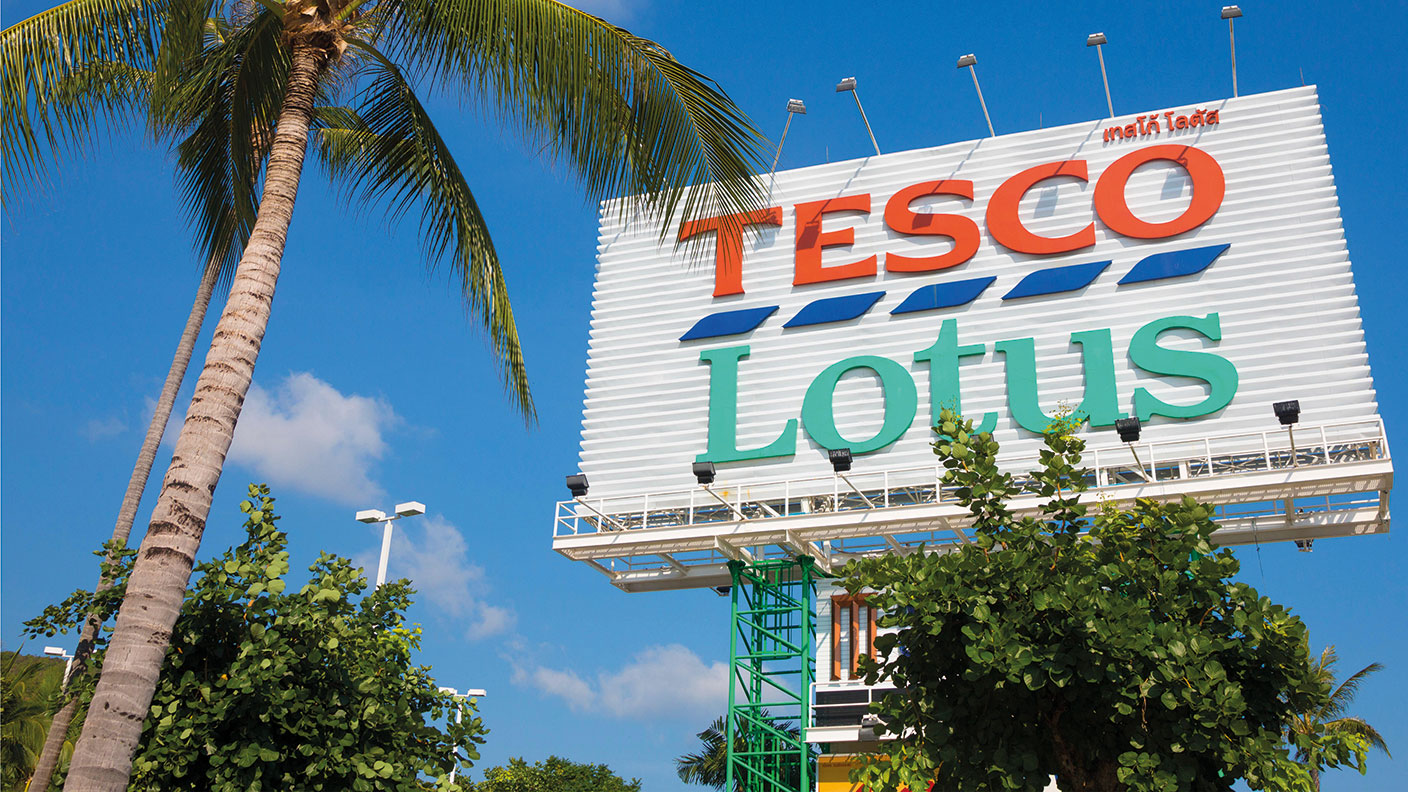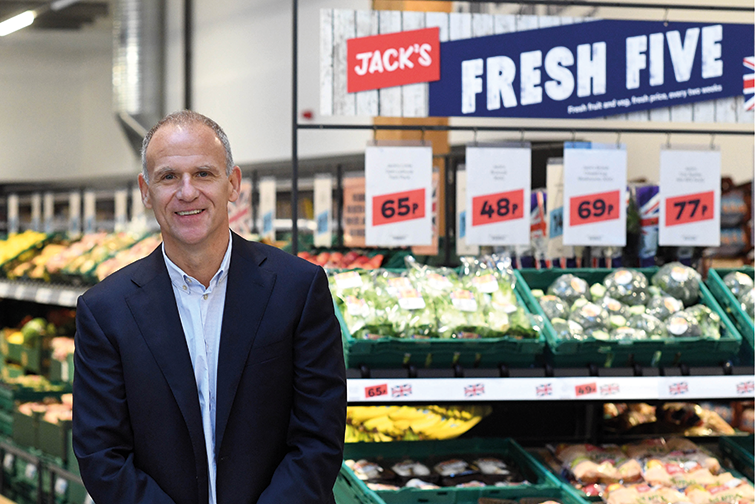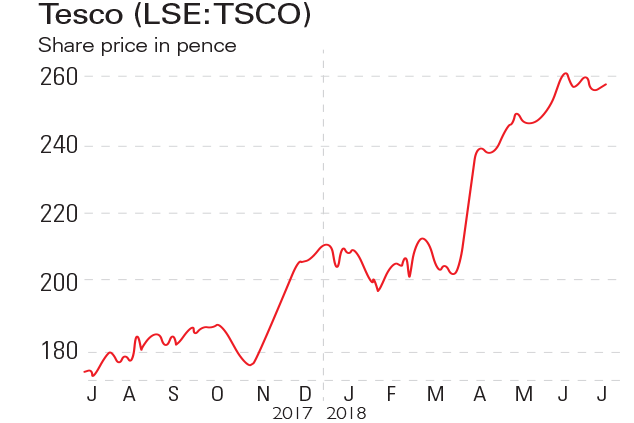Tesco: an ongoing disaster area
Tesco has issued its fourth profit warning of the year, and its shares are tanking. Matthew Partridge looks at what's gone wrong as it lurches from one disaster to another.

Get the latest financial news, insights and expert analysis from our award-winning MoneyWeek team, to help you understand what really matters when it comes to your finances.
You are now subscribed
Your newsletter sign-up was successful
Want to add more newsletters?

Twice daily
MoneyWeek
Get the latest financial news, insights and expert analysis from our award-winning MoneyWeek team, to help you understand what really matters when it comes to your finances.

Four times a week
Look After My Bills
Sign up to our free money-saving newsletter, filled with the latest news and expert advice to help you find the best tips and deals for managing your bills. Start saving today!

Tesco has issued yet another profit warning and its shares are tanking. What's gone wrong? Matthew Partridge reports.
What's the latest problem?
Tesco has had to issue its fourth profit warning this year. It reckons profits for the year ending in February will now come in at no more than £1.4bn, compared to previous expectations of around £2.5bn. The new figures are said to be due to changes in the way Tesco handles transactions with suppliers.
What's happened this time?
The supermarket giant was forced to make these changes after it was found to be manipulating payments related to in-store promotions (which suppliers pay for), giving a misleading impression of its profits. The scandal has resulted in the departure of many of Tesco's top executives, and an investigation by the Serious Fraud Office.
MoneyWeek
Subscribe to MoneyWeek today and get your first six magazine issues absolutely FREE

Sign up to Money Morning
Don't miss the latest investment and personal finances news, market analysis, plus money-saving tips with our free twice-daily newsletter
Don't miss the latest investment and personal finances news, market analysis, plus money-saving tips with our free twice-daily newsletter
Any other casualties?
It's been a painful year for Tesco. At the start of September, Philip Clarke who had taken over from Sir Terry Leahy as chief executive resigned. The company's chairman has also indicated that he will resign. Another casualty of the scandal has been Tesco's dividend, slashed by 75%. And inevitably, the share price has suffered too the price of Tesco shares has practically halved over this year, falling by more than 10% on the latest warning alone.
Is it just about the accounting scandal?
Unfortunately not. Tesco faces two main challenges. In order to fund a relatively high dividend, it cut back on essential spending, leaving its stores stale and unattractive. It also raised extra cash by tapping its property portfolio selling its buildings and land in many cases, and then leasing them back. As a result, it has to pay large annual rents. Tesco has also suffered from the fact, as my colleague Phil Oakley has pointed out, "it is stuck in no-man's land between the discount supermarkets (Aldi and Lidl) and quality operators such as Sainsbury's, Waitrose and M&S".
So, what is the management doing?
Even though he has been Tesco chief executive for over 100 days, new boss Dave Lewis only assumed day-to-day management last week. He has promised to formally present his strategy to investors for turning around the supermarket's fortunes in the early New Year. However, it looks like it will involve cutting prices to meet price competition, while hiring more staff to improve customer service.
Already, prices on more than 1,000 products have been slashed, while Tesco will be keeping staff it usually only hires for the Christmas holiday rush on for longer. Meanwhile, to improve relations with suppliers and prevent a recurrence of the accounting scandal, all Tesco's negotiators have undergone retraining.
Will this work?
Experts are divided as to whether Tesco will be able to turn its fortunesaround. Barclay's James Anstead thinks the recent changes suggest that "Tesco seems to be reorienting the business so that it is driven much more by selling what customers want to buy, rather than what suppliers want to sell". This will lead to "a healthier relationship [with suppliers] and a better commercial position". Clive Black of Shore Capital is also upbeat, predicting that Lewis can make Tesco "lower cost, leaner, more agile and cheaper".
However, Neil Saunders of Conlumino warns that "the days of easy profit and easy growth are now over". He notes that the wider environment for supermarket means "it is not possible for all retailers to grow". And early indications have not been encouraging so far, with sales in the three months to November down by nearly 4%.
Get the latest financial news, insights and expert analysis from our award-winning MoneyWeek team, to help you understand what really matters when it comes to your finances.

-
 Should you buy an active ETF?
Should you buy an active ETF?ETFs are often mischaracterised as passive products, but they can be a convenient way to add active management to your portfolio
-
 Power up your pension before 5 April – easy ways to save before the tax year end
Power up your pension before 5 April – easy ways to save before the tax year endWith the end of the tax year looming, pension savers currently have a window to review and maximise what’s going into their retirement funds – we look at how
-
 How to profit from rising food prices: which stocks should you invest in?
How to profit from rising food prices: which stocks should you invest in?Tips Food prices are rising – we look at the stocks to avoid and the one to invest in this sector.
-
 Tesco looks well-placed to ride out the cost of living crisis – investors take note
Tesco looks well-placed to ride out the cost of living crisis – investors take noteAnalysis Surging inflation is bad news for retailers. But supermarket giant Tesco looks better placed to cope than most, says Rupert Hargreaves.
-
 Tesco sells its retail subsidiary in Thailand and Malaysia for £8bn
Tesco sells its retail subsidiary in Thailand and Malaysia for £8bnNews Tesco has agreed to sell its southeast Asian operations to Thai conglomerate Charoen Pokphand for £8.2bn in cash.
-
 Tesco should keep its Asian assets
Tesco should keep its Asian assetsOpinion The £7bn that Tesco could get for its Tesco Lotus business in Asia looks enticing. But holding on to it would be smarter, says Matthew Lynn.
-
 Tesco wields the axe
Tesco wields the axeFeatures Britain’s biggest supermarket is cutting back on staff and fresh food. Will the move prove counterproductive? Matthew Partridge reports.
-
 If you'd invested in: Tesco and Associated British Foods
If you'd invested in: Tesco and Associated British FoodsFeatures Tesco has seen its market value rise almost 50% in a year, while AB Foods has seen shares slide despite a rise in profits.
-
 What's behind Tesco’s alliance with Carrefour?
What's behind Tesco’s alliance with Carrefour?Features Tesco is clubbing together with French rival Carrefour to bulk buy own-label goods in an effort to cut costs. Will it succeed? Ben Judge reports.
-
 Lessons from Tesco’s turnaround
Lessons from Tesco’s turnaroundOpinion Retailers have it tough, but Tesco has shown that it’s still possible to thrive, says Matthew Lynn.